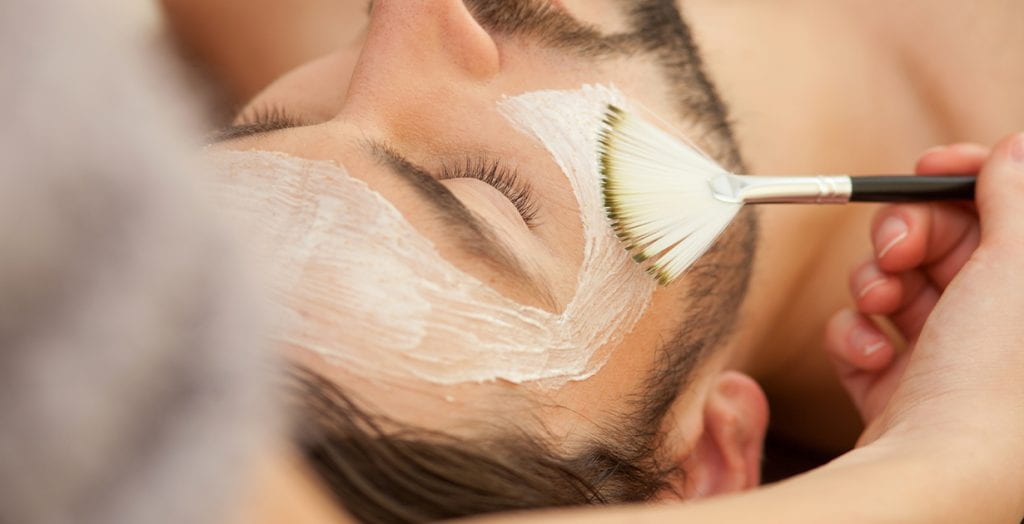
Sensitive skin often requires extra care to prevent irritation, inflammation, or redness. Whether you’re aiming to achieve a radiant glow, reduce sensitivity, or find beauty treatments that fit your routine, natural remedies provide an effective, soothing solution. Here, we explore natural beauty tips for sensitive skin that you can easily try at home, or with a little help from beauty professionals providing beauty parlour services at home, and spa for women.
1. Embrace Mild Cleansing With Natural Ingredients
Gentle cleansers that remove impurities without disrupting the skin’s natural barrier benefit sensitive skin. Opt for natural ingredients like honey, oatmeal, and chamomile, which have cleansing and calming properties.
- Honey Cleanser: Honey is antibacterial and highly moisturizing, making it ideal for sensitive skin. For a hydrating cleanse, simply apply raw honey to your face, massage gently, and rinse with lukewarm water.
- Oatmeal Face Wash: Finely ground oatmeal is a natural exfoliant and cleanser. Mix it with water, massage it onto the skin, and rinse. The soothing properties of oatmeal can reduce redness and calm inflammation.
2. Moisturize with Natural Oils
Finding a non-irritating moisturizer is key for sensitive skin. Natural oils like jojoba, rosehip, and chamomile can provide nourishment without the risk of harsh chemicals.
- Jojoba Oil: Jojoba oil is a lightweight and hypoallergenic oil that mimics the skin’s natural sebum, making it less likely to cause a reaction. Apply a few drops to the face after cleansing for a hydrating boost.
- Rosehip Oil: Rich in vitamins A and C, rosehip oil can soothe the skin, reduce redness, and protect against environmental damage. Just a few drops can be applied directly to the skin or mixed with your moisturizer.
Consider seeking a beautician at home for personalized advice on selecting the right oils for your skin type. They can also offer insights on how to blend oils for the best results.
3. Use Soothing Masks
Natural masks made from yogurt, cucumber, or aloe vera are soothing, easy to make, and perfect for calming sensitive skin.
- Yogurt and Honey Mask: Yogurt contains probiotics that help restore the skin’s natural barrier, while honey adds moisture. Mix one tablespoon of yogurt with a teaspoon of honey, apply to the skin, and rinse after 15 minutes for a nourished and refreshed look.
- Aloe Vera and Cucumber Mask: Aloe vera is a powerful anti-inflammatory agent, and cucumber hydrates and cools. Blend a small amount of cucumber with aloe vera gel and apply it as a mask for instant relief.
With salon services at home, you can enjoy a customized face mask experience tailored to your needs. Many home salons use natural ingredients, ensuring a spa-like experience without harsh chemicals.
4. Try Green Tea for Natural Toning
Toning can be tricky for sensitive skin, but green tea offers a gentle alternative. Rich in antioxidants, it helps protect the skin from environmental damage and can reduce redness.
- DIY Green Tea Toner: Brew a cup of green tea, let it cool, and transfer it into a spray bottle. After cleansing, use it as a toner by spraying it lightly on your face or applying it with a cotton pad.
Green tea is not only free from chemicals but also acts as a refreshing toner that soothes the skin. When booked as part of a spa for women services, some home salons even incorporate green tea facials for a naturally calming experience.
5. Exfoliate Lightly With Natural Exfoliants

Exfoliating should be done sparingly to avoid irritation for sensitive skin. Natural options like ground oats, almond meal, or rice powder can provide gentle exfoliation.
- Rice Powder Scrub: Rice powder is soft and fine, making it suitable for sensitive skin. Mix rice powder with a small amount of water or honey to form a paste and apply it to the face in gentle, circular motions.
- Almond Meal Exfoliant: Almond meal contains vitamin E, which is beneficial for sensitive skin. Blend almond meal with milk or honey, and use it once a week to keep the skin smooth and bright.
If you prefer professional assistance, beauty parlour services at home often provide gentle exfoliation treatments using skin-friendly products suited for sensitive skin types.
6. Protect Your Skin with Natural Sunscreen Alternatives
Sensitive skin can react to chemical sunscreens, so consider natural options like zinc oxide or aloe vera-based sunscreens.
- Zinc Oxide Sunscreen: Zinc oxide is a natural mineral that provides broad-spectrum sun protection without causing irritation. Look for zinc oxide in organic sunscreen products specifically formulated for sensitive skin.
- Aloe Vera Gel: While not a replacement for sunscreen, aloe vera gel has soothing and protective properties. It can provide an additional layer of hydration and calm any redness after sun exposure.
7. Night Care with Chamomile and Lavender
A solid nighttime routine helps sensitive skin recover while you sleep. Chamomile and lavender oils are especially calming, making them great additions to your evening regimen.
- Chamomile Oil: Known for its anti-inflammatory properties, chamomile oil reduces irritation and redness. Mix a drop with your night cream or apply directly for a calming effect.
- Lavender Oil: Lavender oil is known for its ability to soothe and relax the skin and senses. A few drops mixed with a carrier oil, like jojoba, can help you unwind and treat sensitive skin simultaneously.
Many salons offer nighttime skin rituals as part of their salon services at home, allowing you to relax while they apply skin-calming treatments tailored to sensitive skin.
8. Hydrate and Balance Your Diet
Sensitive skin often reflects internal imbalances, so hydration and a balanced diet are crucial. Drink enough water daily and eat foods rich in omega-3s, antioxidants, and essential vitamins, such as berries, spinach, and fatty fish.
- Hydrating Herbal Teas: Opt for soothing teas like chamomile, peppermint, or green tea to stay hydrated while also calming your skin.
- Antioxidant-Rich Foods: Berries, nuts, and leafy greens supply the skin with nutrients to reduce inflammation and combat sensitivity from the inside out.
Conclusion
Caring for sensitive skin doesn’t mean you must avoid pampering yourself. With the help of natural ingredients, you can nourish and protect your skin effectively. Embracing beauty parlour services at home, salon services at home, and spa for women ensures that your skincare treatments are both convenient and suited to your unique skin needs. A professional beautician at home can help you develop a skincare routine and introduce gentle, natural ingredients that keep sensitive skin looking and feeling its best.

















